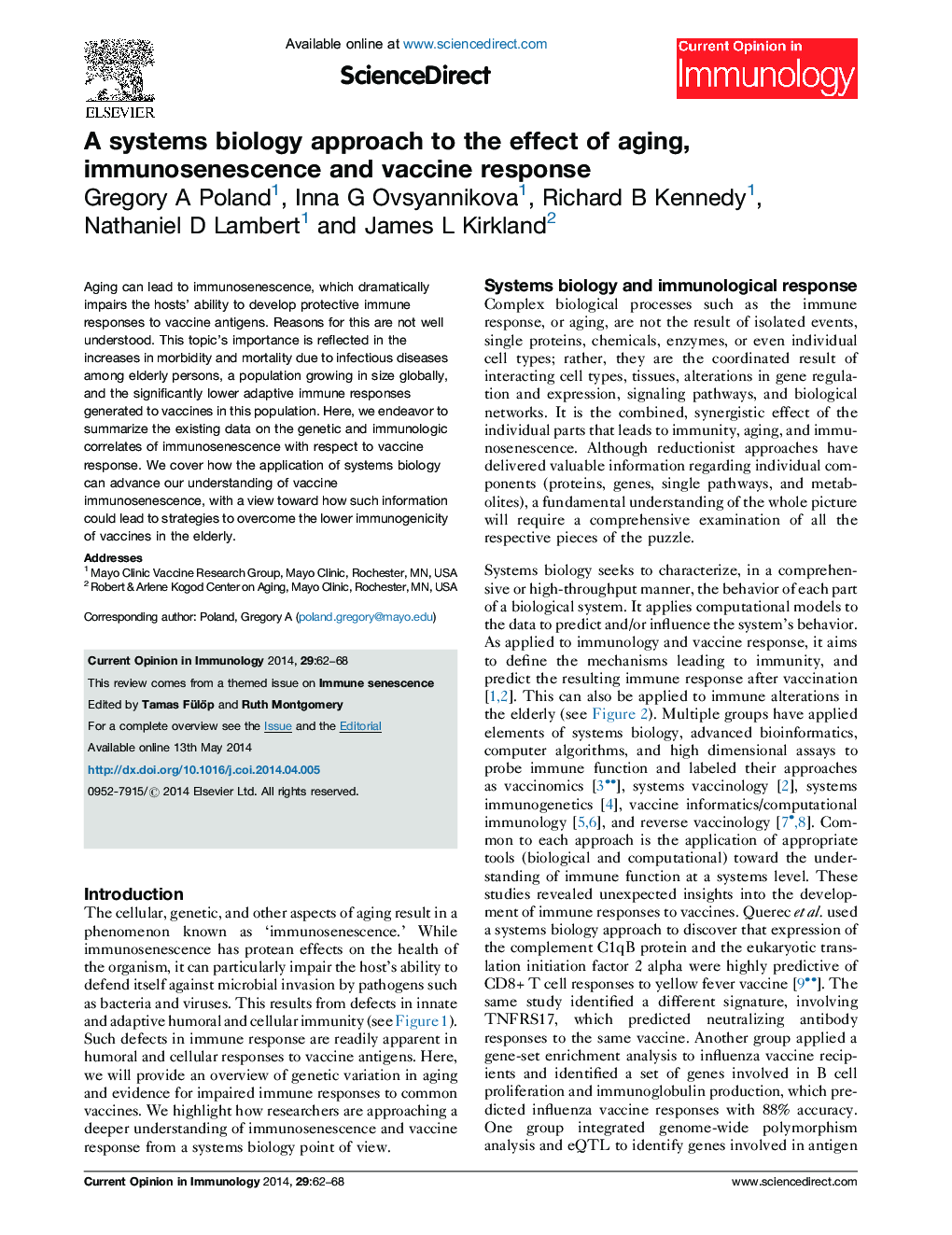| Article ID | Journal | Published Year | Pages | File Type |
|---|---|---|---|---|
| 3345899 | Current Opinion in Immunology | 2014 | 7 Pages |
•Immunosenescence leads to increased susceptibility to infection and decreased vaccine response.•Heme-oxygenase gene expression may be an important element in age-related impairment of response to influenza vaccine.•A systems level approach is needed to define the complex biological processes of immunosenescence.•Systems biology has revealed vaccine-specific, age-related changes in apoptosis gene modules.
Aging can lead to immunosenescence, which dramatically impairs the hosts’ ability to develop protective immune responses to vaccine antigens. Reasons for this are not well understood. This topic's importance is reflected in the increases in morbidity and mortality due to infectious diseases among elderly persons, a population growing in size globally, and the significantly lower adaptive immune responses generated to vaccines in this population. Here, we endeavor to summarize the existing data on the genetic and immunologic correlates of immunosenescence with respect to vaccine response. We cover how the application of systems biology can advance our understanding of vaccine immunosenescence, with a view toward how such information could lead to strategies to overcome the lower immunogenicity of vaccines in the elderly.
